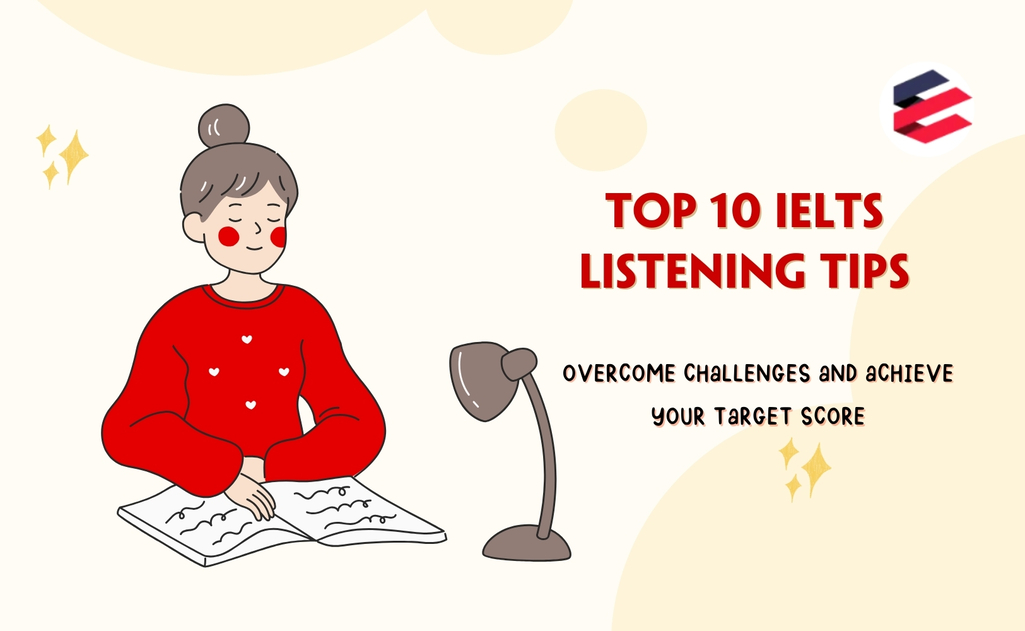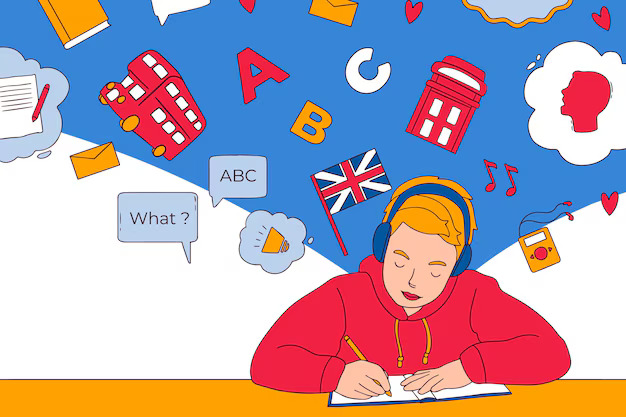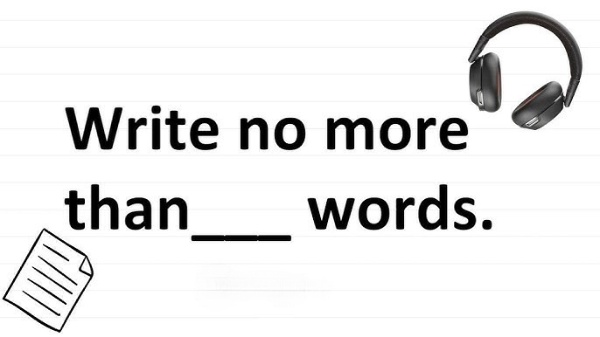Top 10 IELTS Listening Tips: Overcome Challenges and Achieve Your Target Score
“What did he just say? Oh no, I totally missed that!” — this is a common frustration among IELTS candidates. The fleeting nature of the audio recordings can make the Listening test one of the most stressful components of the exam. However, with the right strategies and preparation, it is also the section where you can significantly elevate your overall band score.
If you are looking to refine your skills and boost your performance, you have arrived at the right place. Below is a comprehensive guide featuring the top 10 most effective IELTS listening tips, curated by IELTS-Testpro to help you navigate the test with confidence.

I. IELTS Listening Test Overview
The IELTS listening test is designed to test your ability to both hear and understand the English language. This part of the test takes 30 minutes and is the same for both the General Training and Academic IELTS tests.

IELTS Listening is divided into four sections, with 10 questions in each section. The test takes around 30 minutes to complete, with each section getting increasingly more difficult. You will have 10 minutes at the end of the listening test to transfer your answers to the answer sheet.
For further information on IELTS listening test, check out this overview of IELTS Listening.
II. Common Types of Questions in IELTS Listening Test
The IELTS Listening test employs a diverse range of question formats to test different listening sub-skills. Familiarizing yourself with these types is crucial for anticipating what is required.
- Multiple choice
You will select the correct answer from a list of options (e.g., A, B, or C). Some questions may require choosing more than one answer.
Read more about IELTS Listening Multiple Choice Questions.
- Matching
You will match a list of items (e.g., names, places, or events) to the correct options based on the audio.
Read more about IELTS Listening Matching Questions.
- Plan, map, diagram labelling, flow chart or summary
You will label parts of a visual (e.g., a building layout or a map) by identifying locations or features described in the recording.
Or else, fill in missing information based on the audio. This format often involves factual details like dates, names, or steps in a process.
Read more about IELTS Listening Map/Diagram/Plan/Flowchart Labelling Questions.
- Sentence completion
You must complete sentences with information from the recording.
Read more about IELTS Listening Table Completion Questions.
- Short answer
Answer questions in a few words, often based on factual information (e.g., “What time does the lecture start?”).
Read more about IELTS listening Short Answer Questions.
III. Top 10 IELTS Listening Tips to improve your skills
Achieving a high band score requires more than just passive listening; it demands active engagement and strategic thinking. Here are ten expert tips to help you master the test.
Tip 1: Familiarize with a Range of Accents
The IELTS Listening test will feature a range of accents to reflect the international nature of English. Therefore, you should get used to listening to accents from a range of English-speaking countries.

To apply this IELTS Listening tip, you can try listening to regional radio stations or actively watch TV shows from different English-speaking countries. A quick search on Google is all you need to find these.
Tip 2: Don’t Lose Concentration
It can be difficult to stay focused during your IELTS Listening test, but it’s also extremely important if you want to score a Band 7 or above. To improve your concentration, you need to practice active listening.

This IELTS Listening tip involves setting yourself small tasks when you are practizing and actually doing something when you are listening, just like you will be in your test.
Tip 3: Follow the Instructions Carefully
This is one of the most important IELTS Listening tips when it comes to adhering to the word limit.

For instance, if the instructions specify “No more than three words,” you must ensure your answer does not exceed this limit.
Tip 4: Pay Attention to Keywords
Before each audio recording is played, you will be able to view the questions for that recording. You can use this time to think about which words might be important, these are called keywords.

When the recording plays, you will listen for these keywords (or synonyms). The IELTS Listening tips can help you answer the questions quickly.
Tip 5: Develop Note-taking Skills
This is one of the most effective tips on Listening IELTS, as it allows you to capture key information quickly and accurately. Practicing shorthand techniques and focusing on writing only the most important details can help you avoid missing crucial points.

By improving your note-taking, you’ll be able to recall answers more easily and improve your overall listening comprehension during the test.
Tip 6: Focus on Word Types
Another IELTS listening advice is to determine what type of word will go in each gap. Is it a noun, verb, adverb or adjective? Write ‘N’ in the gap if you think you should write a noun, ‘V’ for a verb…

By marking the gap with ‘N’ for noun, ‘V’ for verb, and so on, you’ll be able to narrow your focus to the specific word forms needed, making it easier to identify the correct answer as you go through the test.
Tip 7: Take Notice to Word Indicators
Linking words, also known as transitional words or word indicators, are used to connect sentences and clauses in a paragraph together to make the sentence smoother and more coherent.

The IELTS listening advice is to focus on linking words like “however,” “but,” “then,” and “finally”, which helps you predict what the speaker might say next during the IELTS Listening test.
Tip 8: Learn Vocabulary Categorized by Topic
Part 3 of the IELTS Listening test typically focuses on a specific topic. For instance, the question may present a conversation between a researcher and a colleague discussing environmental conservation efforts.

Equipping yourself with relevant vocabulary is the best one amongst many tips on listening IELTS, providing you with a better understanding of the topic and be able to express your thoughts more confidently.
Tip 9: Understand the Context and Characters
Usually, at the beginning of each listening, you will hear a short introduction: “Now, you will hear a dialogue between…’ or ‘you will hear a lecture on…”.

This information is not provided in the topic or the questions, so some IELTS listening tips advice to pay attention to the introduction and find out key information such as: who the characters are in the passage, what their names are, what they are discussing or where they are.
Tip 10: Do not Write Answer When Unsure
This is one of the most underrated tips on listening IELTS and many candidates make this mistake since they think they have the correct answer as soon as they hear the relevant information. However, this information might be revised or clarified as the conversation continues.

For example:
Alex: I got your order, so you want a large pepperoni pizza, right?
Jordan: No, I actually asked for a medium veggie pizza, not pepperoni.
Alex: Oh, my apologies!
Conclusion
To improve your performance on the IELTS listening test, it’s essential to follow these IELTS listening tips. IELTS TEST PRO offers expert resources and practice tests to help you achieve your desired score based on your current level. Applying these IELTS strategies and consistent practice with IELTS online test on IELTS TEST PRO will help you achieve a higher score.